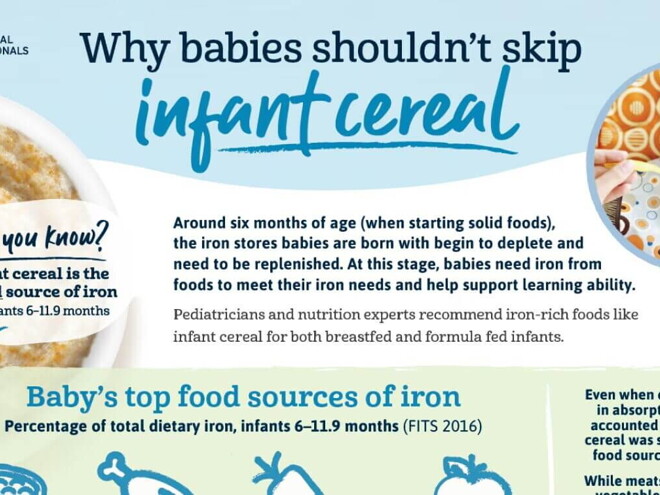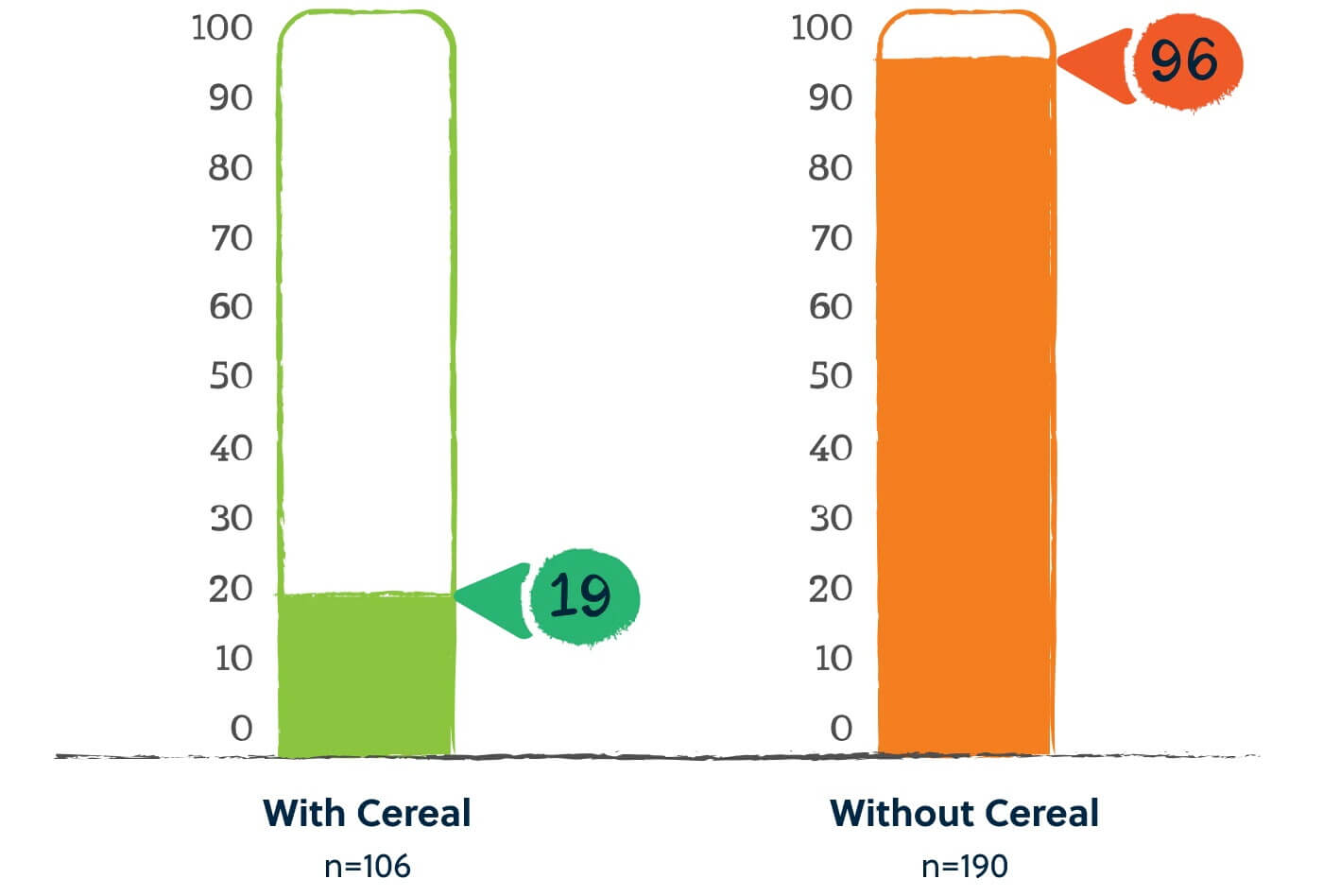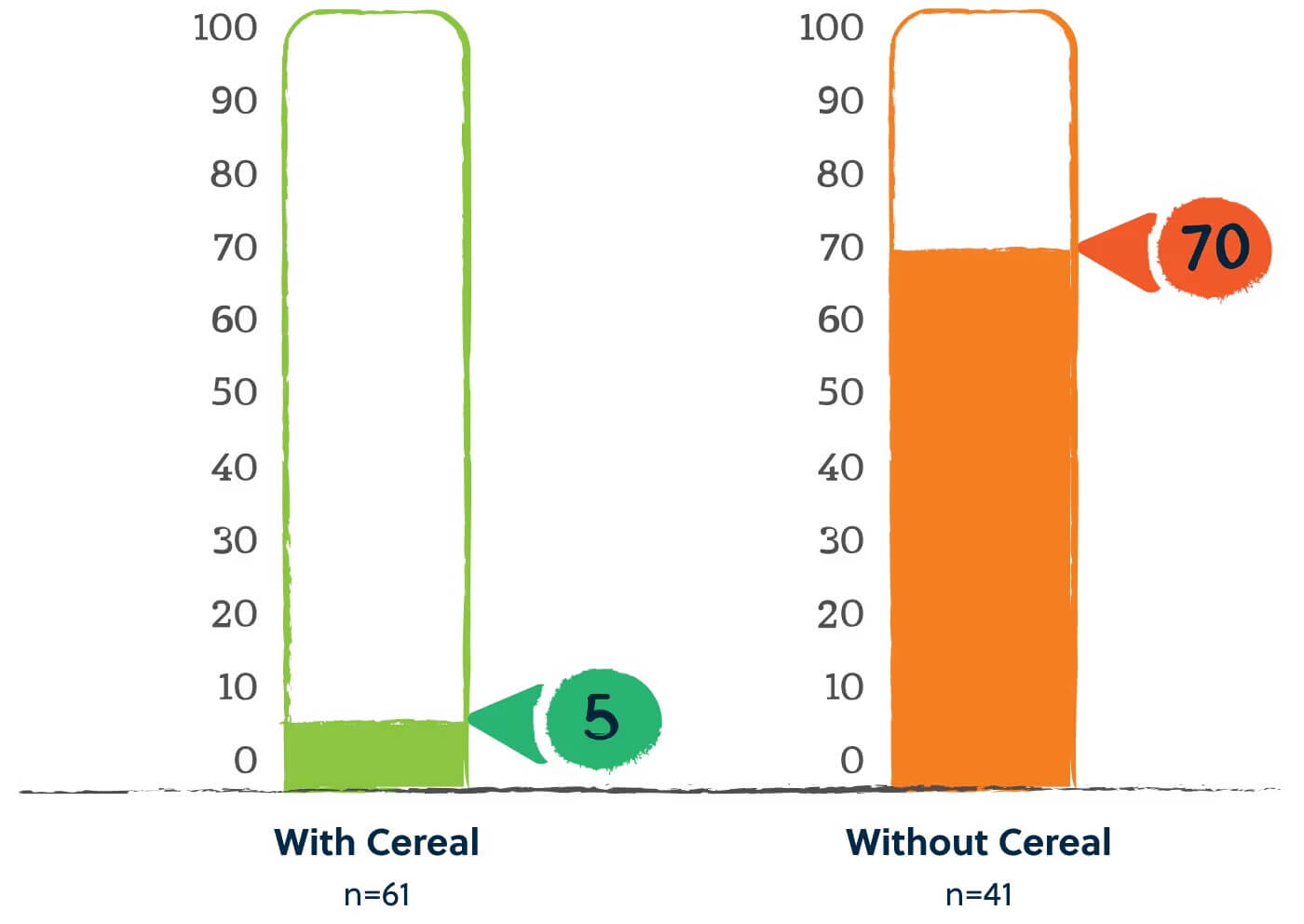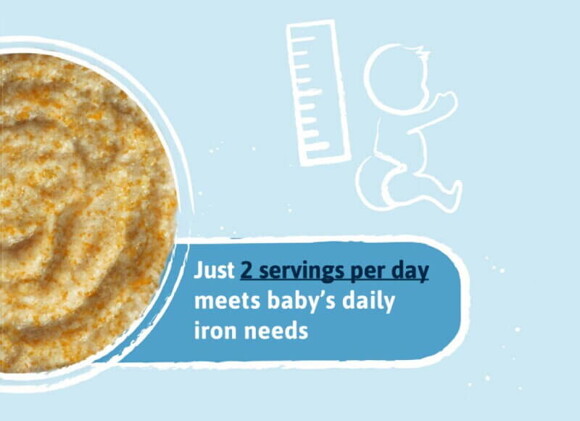
Why Babies Shouldn't Skip Infant Cereal
Table of contents
- Start iron-rich foods around six months
- Baby's top food sources of iron
- Daily iron intake
- Gerber Cereals to nourish brand & body
- Footnotes and references
Start iron-rich foods around six months
Around six months of age (when starting solid foods), the iron stores babies are born with begin to deplete and need to be replenished. At this stage, babies need iron from foods to meet their iron needs and help support learning ability.
Pediatricians and nutrition experts recommend iron-rich foods like infant cereal for both breastfed and formula fed infants.
Baby's top food sources of iron
Percentage of total dietary iron, infants 6-11.9 months (FITS 2016)
- 34% Infant Cereal
- 4% Mixed Dishes & Meats/Protein
- 3% Vegetables
- 3% Fruits
Even when differences in absorption were accounted for, infant cereal was still the top food source of iron.1
While meats and some vegetables are rich in iron, babies usually eat small amounts.
Infant cereal makes an impact because it is:
- High in iron
- Eaten often
Did you know?
Infant cereal is the #1 food source of iron for infants 6-11.9 months
Daily iron intake
Research shows without infant cereal, 96% of breastfed babies don't get enough iron.2 Even when baby is supplemented with infant formula, 70% of mixed fed infants have inadequate iron intakes without infant cereal.2
Percentage of Breastfeed Infants with Inadequate Iron Intake

Percentage of Mixed Fed Infants with Inadequate Iron Intake

Total daily iron intake from infant cereal
Infant cereal provides 7% of the total daily iron intake among breastfed infants who consume infant cereal.†
Diet diversity is an important pillar of human health right from the baby years. Health Canada’s Nutrition for Healthy Term Infants: Recommendations from Six to 24 Months - Canada.ca highlights the importance of nutrient dense foods like whole grains, legumes and vegetables for babies.
GERBER® Cereals are iron fortified and good for baby’s body development.
Support healthy growth
Feel good knowing each serving of any GERBER® Baby Cereal contains iron for normal cognitive development, calcium for bones and teeth, and probiotics to support a healthy gut flora.
Nourish little tummies
GERBER® Baby Cereals are an excellent source of Iron, Vitamin B1, B2, B3 with no added salt. Every serving has probiotic B. lactis to support digestive health and a balanced microbiome when eaten on a regular basis.
Promote a diversified diet
Encourage baby's love of nutritious foods. GERBER® Baby Cereals offers a variety of options; all are iron fortified and consists of essential nutrients that are good for baby.

Learn More About GERBER® Baby Cereals
Footnotes and references
† Among 6-11.9 month old infants receiving breastmilk and infant cereal, but no infant formula. Includes nutrients from supplements. (FITS 2016 — data on file).
Abrams SA, Hampton JC, Finn KL. A substantial proportion of 6- to 12-month-old infants have calculated daily absorbed iron below recommendations, especially those who are breastfed. J Pediatr. 2021;231:36-42 e2. 2. Finn K, Kineman B, Carvalho R. Concerning impact of decreasing infant cereal consumption on essential nutrient intakes of breastfed babies: feeding infants and toddlers study (FITS) 2016. Current Developments in Nutrition. 2019; 3(S1):P11-064-19. [ABSTRACT].


